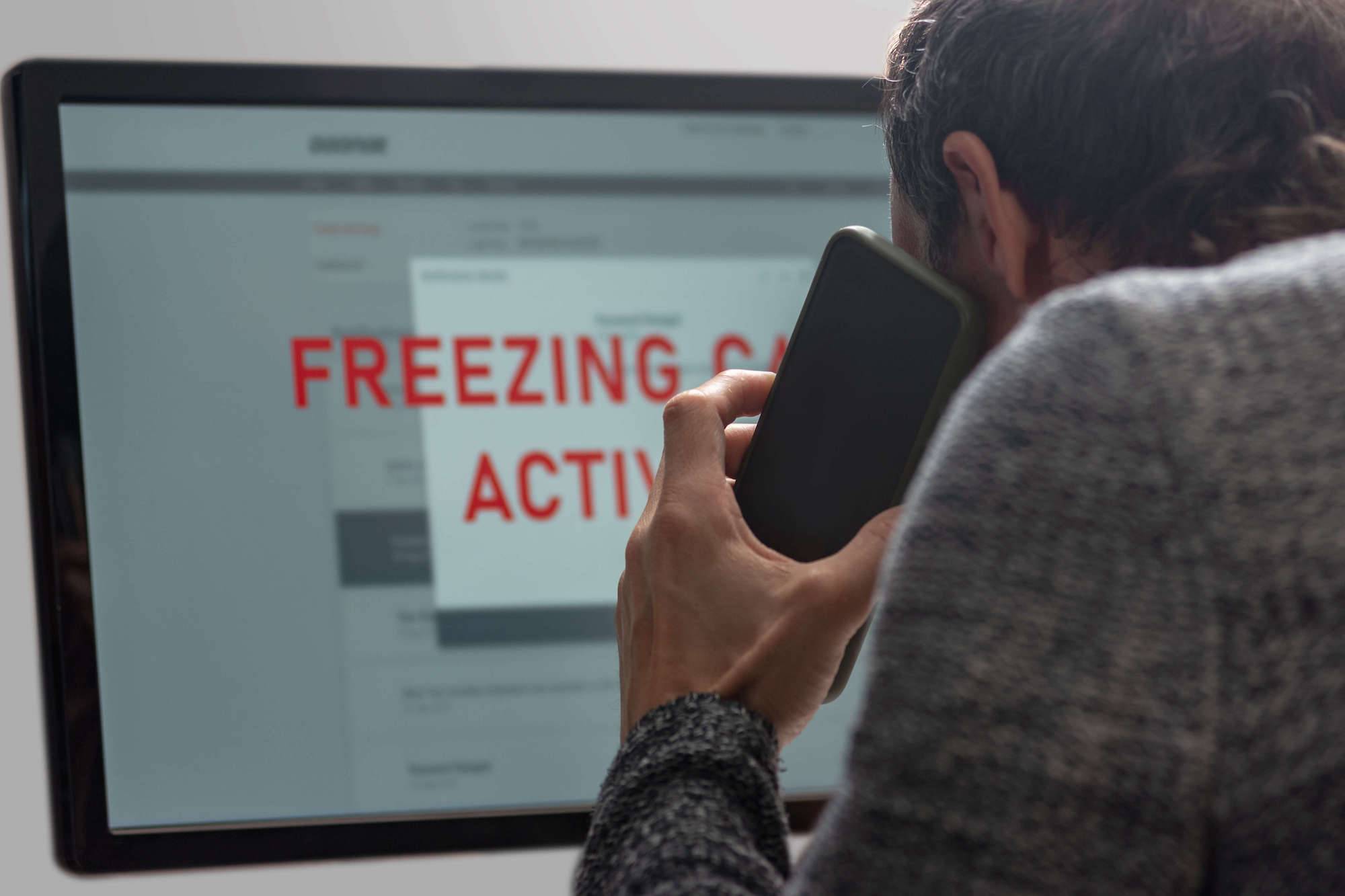Simply put, an account freeze is when your bank/building society prevents further transactions from taking place. When an account is frozen, most activities on the account are suspended with immediate effect. You should still be able to access your bank, whether that be through online banking or even telephone banking, but you are limited to what you can do.
The impact of an account freeze can be quite detrimental, both financially and emotionally. The freeze suspends pre-authorised transactions and even direct debits, which can lead to further detriment if not dealt with in a timely manner. The freeze can pose an immense strain on small-medium businesses and even charities.
Is an account freeze always negative?
The short answer is, no. Although an account freeze is no doubt frustrating, it is not always viewed negatively.
Why has my account been frozen?
There are a few reasons why a bank/building society will seek to freeze an account. Some of the potential reasons will be explored further below.
One of the reasons could simply be a technical glitch, which tends to be the good news in such situations.
If a consumer is facing some form of continued financial difficulties, banks can freeze accounts to prevent further harm in certain circumstances too. It could also be due to insufficient funds, especially where overdraft facilities are active on an account.
During the pandemic, financial fraud has risen sharply, which has resulted to banks being on high alert for such activity. As such an account freeze can seek to protect vulnerable consumers who may be exposed to fraud. If banks find some form of unusual activity taking place on an account, they can take measures to freeze the account. Banks tend to routinely monitor accounts for suspicious activity, such as money laundering and account fraud. Consequently, banks can freeze an account due to suspicion of such activities.
In any event, banks often ask consumers to provide transaction evidence.
What shall I do if my account is frozen?
Firstly, ensure you contact the bank immediately. They should give a reason(s) as to why the freeze took place. The reasons provided at this initial stage may not always be accurate and so this should be kept in mind.
Secondly, the bank may ask you to provide evidence, which you can do. It’s important to gather as much detail surrounding transactions when providing this evidence.
If you remain unsure, you can always get in touch with us, where we can navigate and assist you in recovering your frozen funds.

